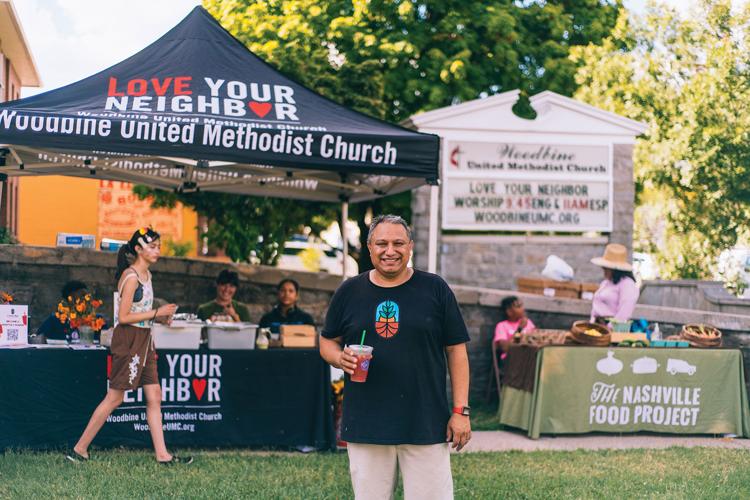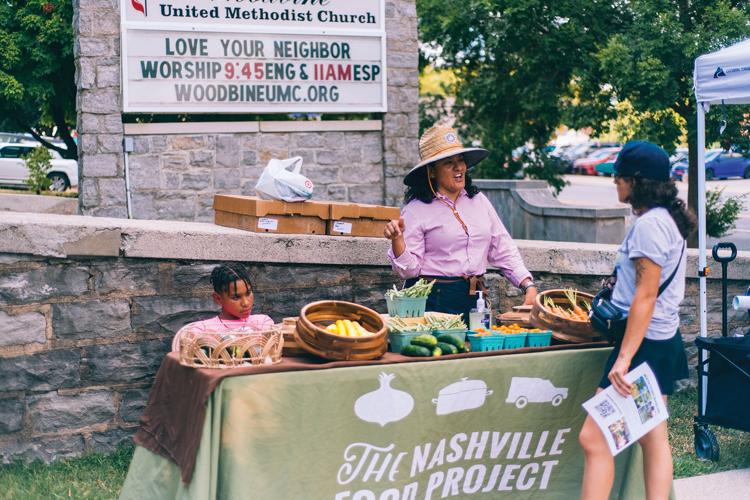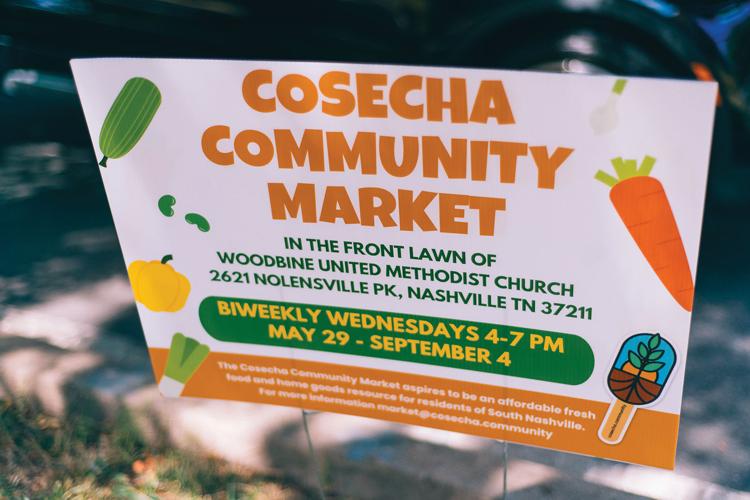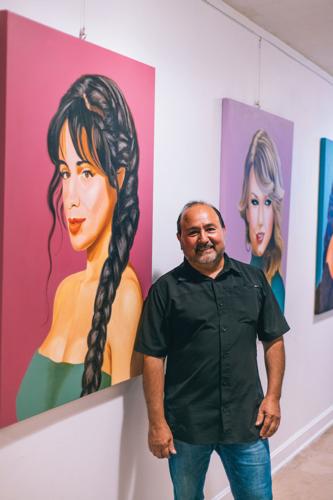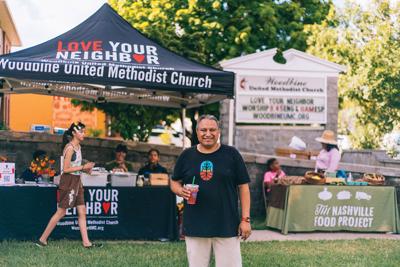The Cosecha Community Market is easy to miss if you’re not looking for it. Open every other Wednesday from late May to early September, it’s tucked away in front of the Woodbine United Methodist Church — one of the few properties on Nolensville Pike that has a grassy front lawn. Despite the space’s proximity to the busy road, the noise of the passing cars fades away behind the vendors’ tents.
While Cosecha’s lineup may change a bit each week, market-goers will likely find a combination of new and familiar organizations. Cosecha vendors’ wares have included the beautifully decorated sweet treats of Panecito KaLe, botanical bath and body products from Soul Seed, produce from The Nashville Food Project, directly sourced Guatemalan coffee from Roast and Brews, food from Las Fajitas and more.

Other organizations like pet foster group Pawster, restorative justice nonprofit the Raphah Institute and art-centric waste-diversion nonprofit Turnip Green Creative Reuse have also set up to connect with attendees about their services and resources. Live music, games and yoga are common at the market, along with bike repair assistance from organization Bike Fun, and artwork from Rubén Torres. On a recent Wednesday afternoon, the Scene visited during the Dog Days of Cosecha — an event where a handful of adorable pups played in a fenced-in area while “pupsicles” made from frozen chicken stock were distributed.
The market is a part of the larger nonprofit Cosecha Community Development, which was created by Woodbine United Methodist Church pastor Carlos Uroza to serve the South Nashville community. The area has a diverse array of residents, including many immigrants, but it’s also facing significant gentrification that presents challenges for those who live there. Uroza points to insufficient access to fresh produce as another issue for the community.

Rubén Torres
When Uroza started Cosecha with co-founder Courtney Hicks (who no longer works with the organization), he didn’t have a set goal in mind. They instead spent the first year of Cosecha’s existence listening to the community, building relationships and seeing what issues were most pressing. Uroza recognizes that mistrust of churches can sometimes begin when they start social programs that communities don’t necessarily want or need.
Despite Cosecha’s connection to Woodbine United, it’s a secular organization, and its goal is not to evangelize but rather to facilitate community connection and empowerment. While listening to residents, Uroza heard concerns about local schools needing more support, gentrification-induced displacement and economic struggles. Cosecha initially planned to facilitate afterschool programs including language support, but the 2020 tornado and the onset of COVID-19 thwarted those efforts. Cosecha pivoted, evolving into what it is today.

While Uroza knows it may be a “wild dream,” he wants to use Cosecha to connect neighborhood residents regardless of whether they’re struggling to keep up with rent or just purchased a million-dollar home. The farmers market is one place for that, but it’s not the sole focus of Cosecha’s work. The organization also helps manage gardens at John B. Whitsitt Elementary School, Wright Middle School and Woodbine Park so locals can learn about and access fresh produce. It also collaborates with Voces de Nashville to facilitate Spanish lessons. Cosecha, Spanish for “harvest,” is the perfect name for the nonprofit.
“As long as we’re able to bring people together, we’re fulfilling our mission,” Uroza tells the Scene.

